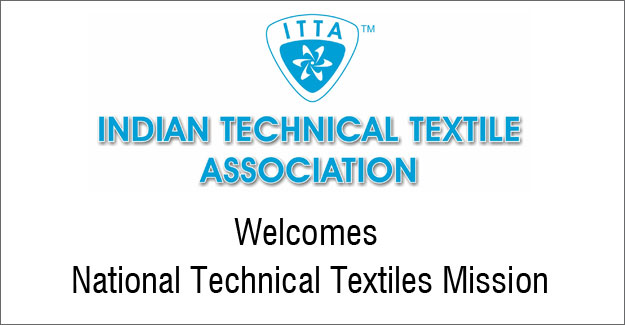
ITTA Welcomes National Technical Textiles Mission
Union Finance Minister, Nirmala Sitharaman in her Budget presentation announced a National Technical Textiles Mission with a four-year implementation period from 2020-21 to 2023-24 at an estimated outlay of Rs 1,480 crore. This is expected to give thrust to production of a wide variety of technical textile used in various sectors such as healthcare, personal protection, infrastructure, automobiles, defence, and agriculture. The Indian Technical Textiles Association congratulates the Union Finance Minister and the Union Textile Minister, Smriti Irani and the government for their proactive steps in making India as a power house of technical textiles. India imports significant quantity of technical textiles worth approximately Rs 14000 crore every year. To reverse this trend and to position India as a global leader, a National Technical Textiles Mission is crucial. According to Dr. K.S. Sundararaman, chairman of the Indian Technical Textiles Association, “The size of the technical textile industry in the country is approximately Rs. 1.16 lakh crore. Few years ago, the sector received focus to set up eight centres of excellence (COE) across the country. With the need to create a domestic base for raw material production, push for manufacture of high end technical textile products, boost investments, and increase per capita consumption, there is a need for a Mission. We need to see how this Mission will be implemented. There should be an empowered nodal office that will coordinate all the efforts and make the Mission beneficial to the industry.” Another major announcement in the Budget, which is expected to give a thrust to the polyester fibre sector, is abolition of anti-dumping duty on PTA (Purified Terephthalic Acid). This is the raw material for production of polyester fibre. This was one of the long-pending demands of the industry. Abolition of anti-dumping duty will bring polyester fibre price in India on a par with international price. Polyester will be the future growth driver for the Indian textile industry. However, it is to be seen how the issue of non-availability of high performance fibres, namely, Aramid, Carbon, Glass, Nylon 66, Antistatic, FR Viscose, etc will be made available in India for which technical textile industry is totally dependent on imports, as they are not manufactured in India.
Textile Excellence
If you wish to Subscribe to Textile Excellence Print Edition, kindly fill in the below form and we shall get back to you with details.













